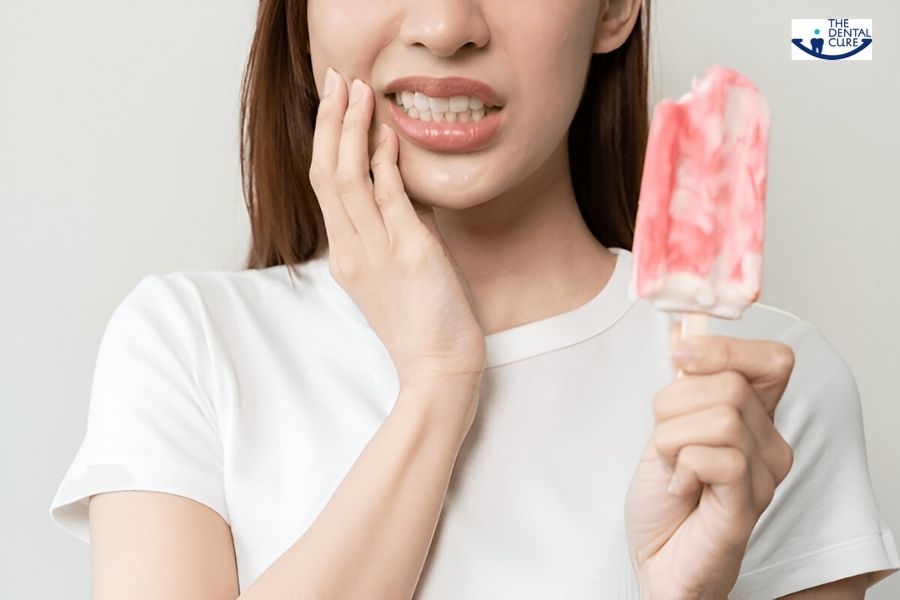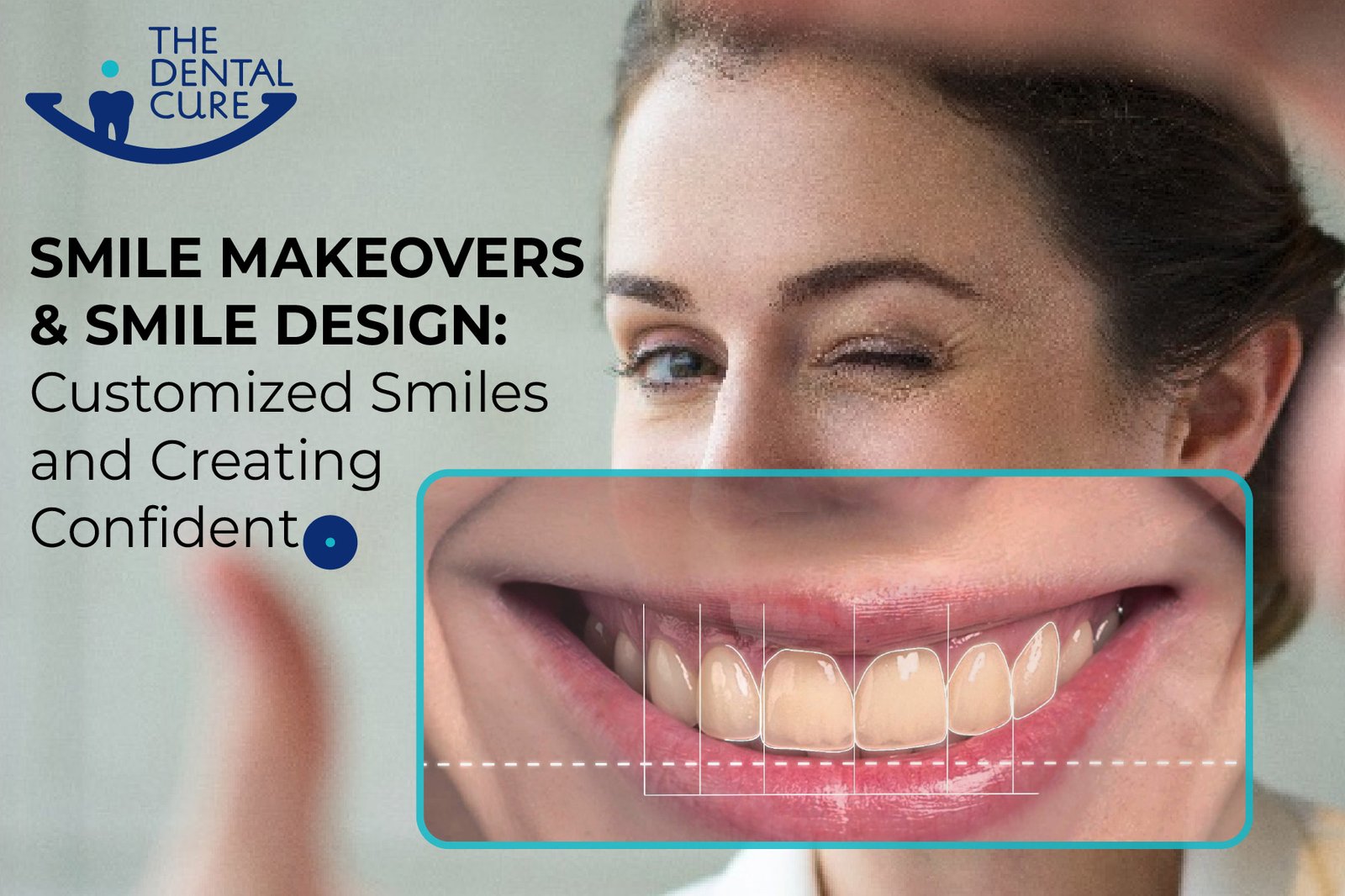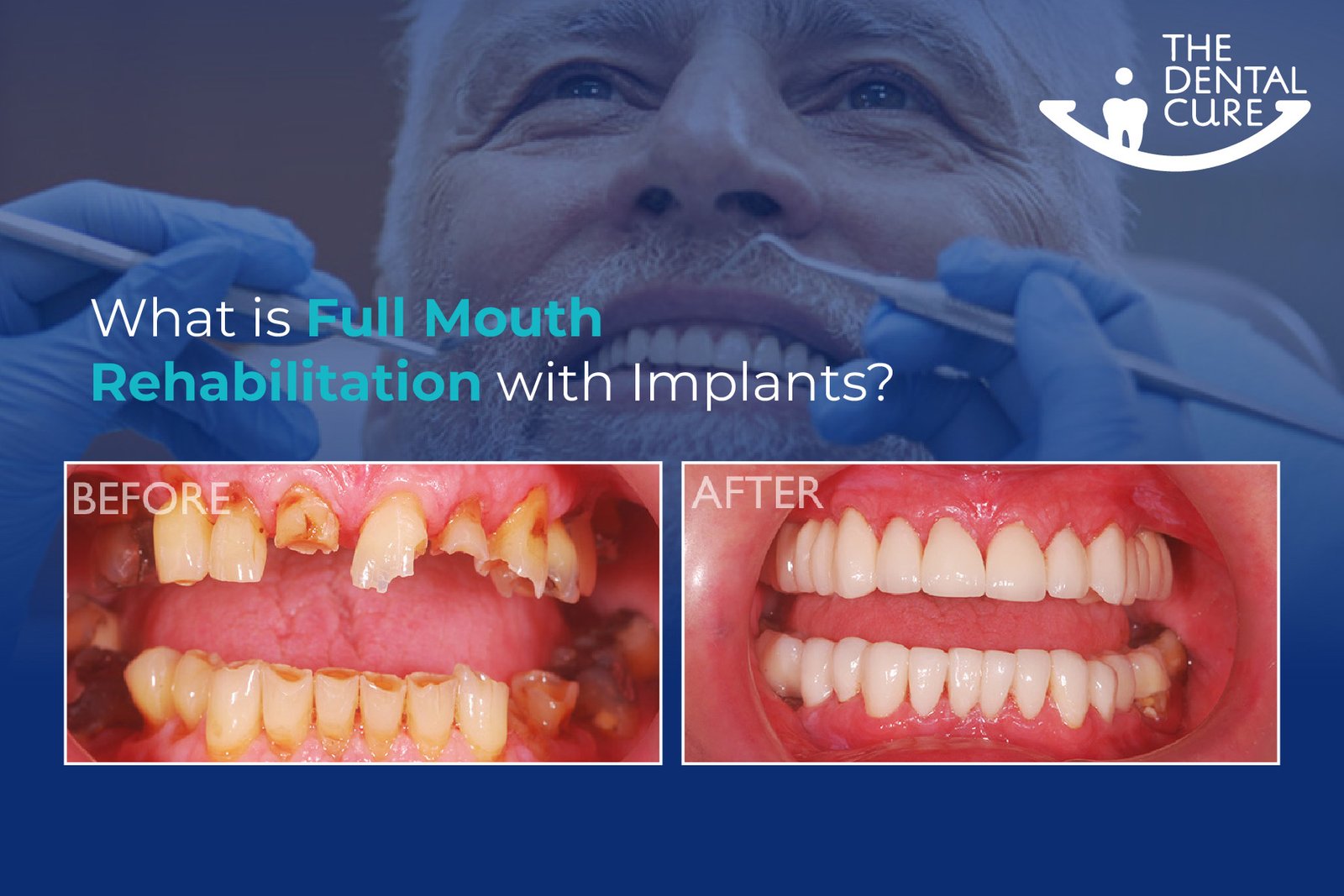Tooth sensitivity can make even the simplest activities like enjoying a hot drink or a cold dessert, uncomfortable. That sudden, sharp pain is often a sign that your teeth need extra care. Fortunately, there are effective steps you can take to alleviate the discomfort quickly. This guide highlights practical solutions for immediate relief from sensitive teeth pain and long-term strategies to keep the problem at bay.
What Causes Tooth Sensitivity?
Tooth sensitivity happens when the hard outer layer of your teeth, called enamel, wears away, or when your gums pull back, exposing a softer layer underneath called dentin. This makes your teeth more sensitive to hot, cold, sweet, or acidic foods and even touch, causing discomfort or pain.

Common causes include:
- Brushing too hard or using a hard-bristled toothbrush.
- Consuming acidic foods and beverages.
- Tooth decay, cracks, or worn fillings.
- Grinding or clenching teeth (bruxism).
- Gum disease or recession.
Identifying the cause of your sensitivity is crucial for effective management and prevention.
Quick Remedies for Sensitive Teeth Pain
When tooth sensitivity strikes, here are some immediate steps you can take to reduce the pain:
1. Warm Saltwater Rinse
Saltwater is a simple yet effective remedy to soothe sensitive teeth. It helps reduce inflammation and eliminates bacteria that may worsen the pain. Mix one teaspoon of salt into a glass of warm water, rinse your mouth thoroughly and repeat twice a day.
2. Apply Desensitizing Toothpaste
Desensitizing toothpaste is specially formulated to block pain signals traveling from the tooth surface to the nerve. Apply a small amount to the affected area and let it sit for a few minutes before rinsing. Regular use can help build long-term resistance to sensitivity.
3. Use a Cold Compress
For sudden, sharp pain, a cold compress applied to the outside of your cheek can numb the area and reduce any inflammation. Hold it for 10-15 minutes as needed.
4. Avoid Extreme Temperatures
Hot and cold foods or beverages are common triggers for sensitive teeth. Stick to foods and drinks that are room temperature until the pain subsides.
5. Fluoride Treatment
Fluoride helps strengthen enamel and reduce sensitivity. Use a fluoride mouthwash or gel, which you can find over the counter, or consult your dentist for a professional fluoride application.
6. Over-the-Counter Pain Relief
For more severe discomfort, nonsteroidal anti-inflammatory drugs (NSAIDs), like ibuprofen, can provide temporary relief. Use them according to the instructions on the packaging.
Preventing Tooth Sensitivity Long-Term
While quick fixes can provide immediate relief, addressing the root cause of your sensitivity is essential for lasting comfort. Here are some strategies to protect your teeth over time:
- Switch to a Soft-Bristled Toothbrush: Hard-bristled brushes and aggressive brushing techniques can wear down enamel and irritate gums. Use a soft-bristled brush and gentle strokes.
- Improve Your Oral Hygiene Routine: Regular brushing and flossing, combined with fluoride toothpaste and an alcohol-free mouthwash, can keep your enamel strong and gums healthy.
- Avoid Acidic Foods and Beverages: Foods like citrus fruits, tomatoes, soda and wine can erode enamel over time. Limit your consumption and rinse your mouth with water afterward.
- Protect Against Teeth Grinding: If you grind your teeth at night, a custom mouthguard can help prevent further enamel loss and reduce sensitivity.
- Visit Your Dentist Regularly: Your dentist can identify issues like cavities, cracks, or gum problems early and recommend treatments to manage sensitivity effectively.
When to Seek Professional Help
If sensitivity persists or worsens despite your efforts, it’s time to consult a dentist. Persistent pain could indicate underlying dental issues, such as:
- Deep cavities.
- Cracked or damaged teeth.
- Advanced gum disease.
Your dentist may suggest professional treatments such as dental bonding, fluoride varnishes, or gum grafting to address the problem
If you’re dealing with tooth sensitivity, don’t ignore it. Visiting The Dental Cure, the best dental clinic in Gurgaon, can help you get professional advice and effective treatments. Taking action now will not only relieve your discomfort but also prevent bigger dental problems in the future. Your healthy, pain-free smile is worth it!
FAQs
How can I reduce tooth sensitivity quickly?
You can reduce sensitivity by using special toothpaste for sensitive teeth, rinsing with warm saltwater, or avoiding very hot or cold foods for a while.
How can I get immediate relief from tooth pain?
Use a cold pack on your cheek, rinse your mouth with saltwater, or gently apply toothpaste for sensitive teeth to the painful area.
How long does sensitive teeth pain last?
Tooth sensitivity pain can last a few minutes or longer. If it keeps coming back, it’s best to see a dentist.
What can I drink for sensitive teeth?
Drink lukewarm water, milk, or herbal tea. Avoid drinks that are very hot, cold, or acidic, like soda or orange juice.
What causes sensitive teeth to worsen?
Sensitivity can get worse if you eat a lot of acidic foods, brush your teeth too hard, or have untreated cavities or gum problems.
Can sensitive teeth heal on their own?
Sensitive teeth usually don’t heal by themselves, but using the right toothpaste and avoiding triggers can help manage it. A dentist can help if it doesn’t get better.
Are there home remedies for sensitive teeth?
Yes, you can try rinsing with saltwater, using a soft toothbrush, or applying clove oil to reduce pain.
Can sensitive teeth mean a bigger problem?
Yes, sometimes it’s a sign of cavities, gum issues, or damaged enamel. It’s a good idea to check with a dentist to find the cause.







